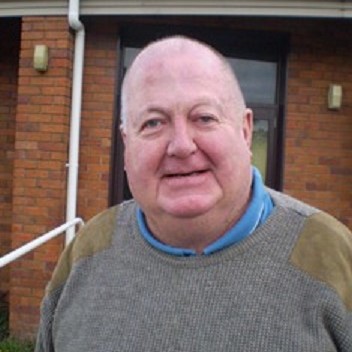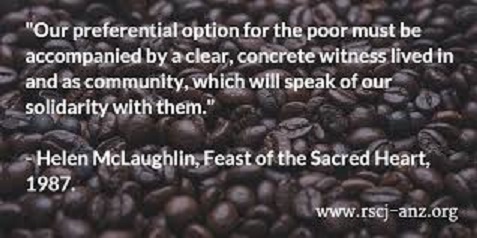Acknowledging John O’Connor MSC, 80

August 15th sees the 80th birthday for John O’Connor, from Sydney, first profession, February 26th 1963, studies at Canberra and Croydon, ordained, May 9th, 1970.
John worked in secondary schools, an itinerant retreat team to MSC schools across Australia, hospital chaplaincy, remote indigenous communities, parishes and overseas pilgrimages.
Here is a story from our archives. Acknowledging John, behind the Poorman Masses of the 1960s and 1970s.
In 1969, some 55 years ago, “The Poorman Masses” began as part of celebrations for the Feast of the Sacred Heart at St Patrick’s Cathedral in Melbourne. After 10 years, the MSC care of the Sacred Heart Day needed new energy; but, how this was to be done was a real conundrum.
“Poverty is painful – even in Melbourne” became the theme that challenged the common belief that poor lived in foreign nations. Religious sisters ministering in public high rise tower housing found it was sadly too common.
In response to this, bringing gifts for the poor during the Eucharist on Sacred Heart Day took seed. The idea of asking people not only to attend Masses at the Cathedral but also to bring gifts for the poor seemed to be fool-hardy. Why make the task harder? The dean of the cathedral was sceptical that even one tea chest would be filled when told a dozen d been provided by a local business to place around St Pat’s.
Cyril Hoy manager of Ozanham House, Vinnies’ shelter for homeless men in Melbourne was enthusiastic in his support. St Vincent de Paul was a vital partner of Poorman Masses, especially in distributing gifts to the poor.

A vital element of the promotion was a catchy title. The expression “a poorman’s …” denotes doing well with limited choices – a poorman’s Merc. “Poorman’s Mass” was edgy. “Poorman Masses” was more accurate and easier to say.
The media were contacted – including cinema advertising, radio, TV stations and press. Catholic schools received promotional material requesting they support the Youth Mass in the morning; but was it all whistling in the wind?
Friday 13th finally arrived. As the bus bringing MSC seminarians from Croydon neared the cathedral, groups of school students were being herded along the footpath by teachers; each child clinging to tins of food or packets of breakfast food. What a welcome sight! There was at least this much response.
By the end of the day, there were big piles of food and clothing – including fine business suits newly dry-cleaned inside the cathedral. A pound of butter happily survived the day on the cold tile floor of the cathedral. The offertory procession was marked by Cardinal Knox wearing his mitre, receiving boxes of cereals and cans of baked beans which were placed around the altar.
At the end of the day, Cyril Hoy estimated about 10 tons of food and clothing had been donated during the day. He calculated the number of trips in his battered Holden station wagon weighed down to the axles to Ozanam House. Donated food was enough for a year at Ozanam House. What might result if all parishes hosted their own Poorman Masses? Would this detract from the Sacred Heart Day at the Cathedral? It was decided it be best that all parishes be involved in future. This of course, meant much dedicated organization by MSC students and priests from then on.

What emerged at the end of the day was a conviction that regardless of the work and the risks taken, this result was the work of the Spirit; success or failure was irrelevant.
Serving the poor is a work of love – a glass of water in his name; do unto others as you would they do unto you; whatever you did to the least, you did it to me … such are familiar Gospel axioms.